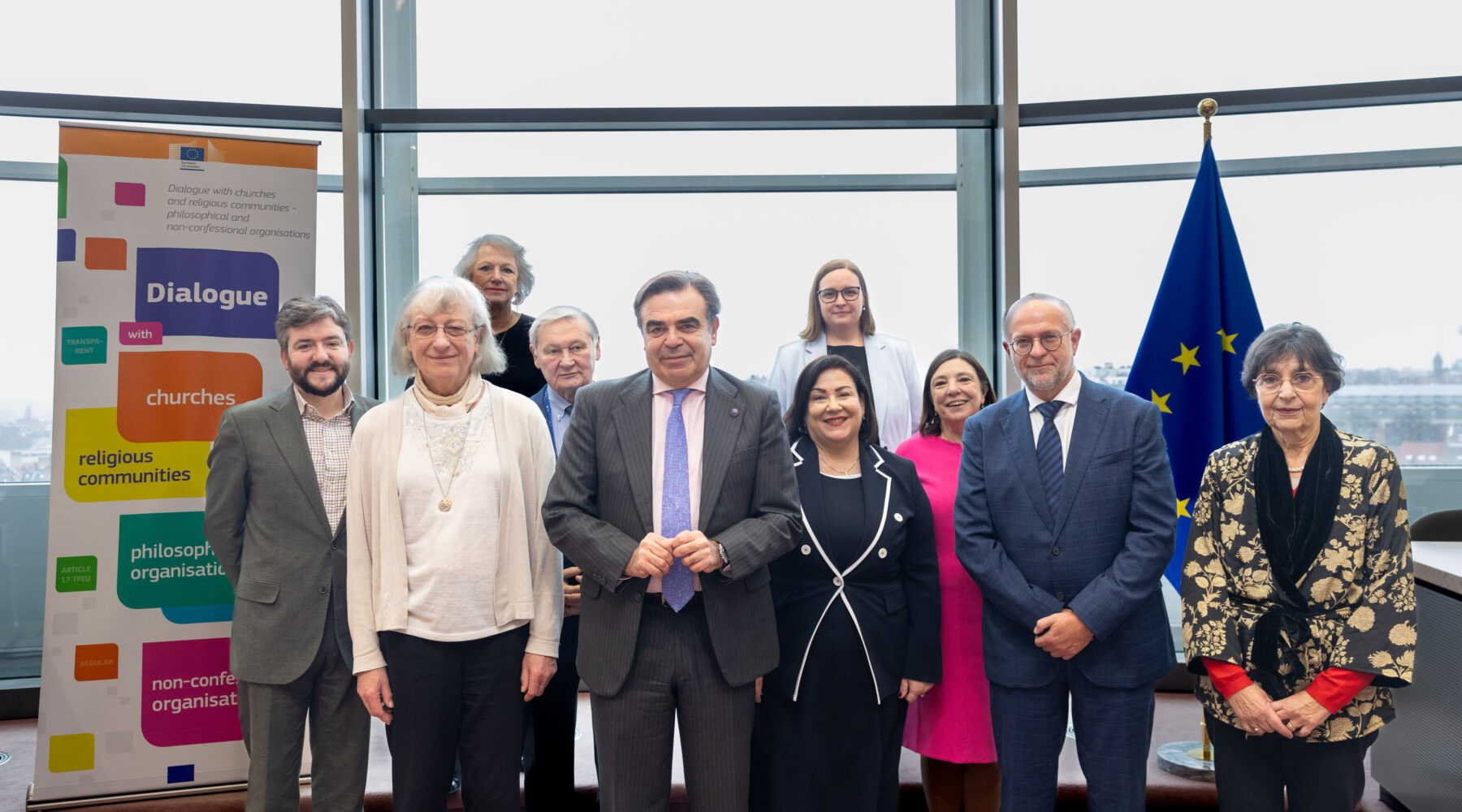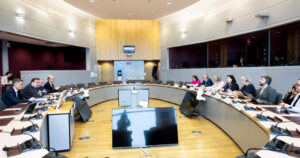


During the meeting, where Vice-President of the European Commission Margaritis Schinas – (and Commissioner for the European Way of Life) and EU Special Envoy for Freedom of Religion or Belief Frans van Daele were present, participants engaged in discussions focusing on the EU’s response to crises faced since 2020, including the Covid-19 pandemic and conflicts in Ukraine and Gaza. They also explored the role of religions and beliefs in addressing these challenges.

Participants at the high-level meeting with Commissioner Schinas.
President of Humanists International, Andrew Copson, delivered a speech, emphasizing the importance of stability, solidarity, and humanist values. Copson highlighted the need for the EU to uphold its values of democracy and solidarity, particularly in response to global challenges and ongoing conflicts. He stressed the pivotal role of humanist principles in fostering a cohesive and inclusive society, advocating for the promotion of education and critical thinking to counter intolerance and exclusionary narratives.
Monica Belițoiu, who is Executive Director of the Romanian Secular-Humanist Association, a member organization of Humanists International, echoed Copson’s sentiments, offering insights into the challenges faced by Eastern Europe in maintaining secularism and protecting human rights. Belițoiu emphasized the dangers of extremism, hate speech, and political polarization in undermining European values, calling for collective action to challenge and dismantle harmful ideologies. She also underscored the importance of transparency, accountability, and ethical conduct in upholding democracy and human rights within the European framework.
The meeting was organised as part of the Article 17 dialogue framework. The stated purpose of the dialogue, enshrined in the Lisbon Treaty’s Article 17, is to facilitate open exchanges between the European Commission and various societal stakeholders. This meeting marked the last meeting under the current Commission (2019-2024).
Featured photos by European Union, 2024 (Copyright)